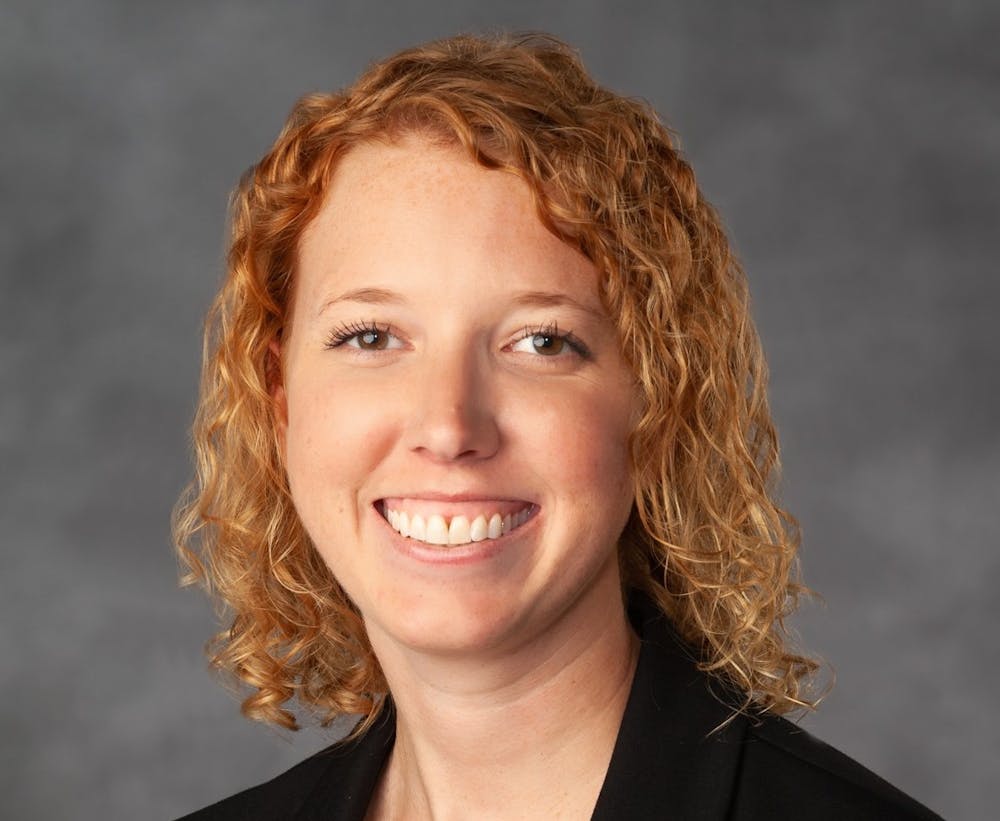Among the hustle and bustle of construction consuming Sarah Brunet Hall, a cozy corner of the building remains a source of consistency for students at the University of Richmond. This is the Center for Awareness, Response and Education, an office dedicated to preventing violence on campus, educating students and faculty about prevention methods and cultivating a culture of safety for everyone at UR.
You may recognize CARE’s work around campus from the office's "My Costume is Not My Consent Halloween" poster campaign, or the educational violence prevention events the office hosts throughout the semester.
At the head of the CARE office is Kaylin Tingle, who serves as the sexual misconduct prevention educator. They began working for CARE in June of 2019, making this their first semester at UR.
“My job is primarily education,” Tingle said. “So, educating students around not only what violence is and how to recognize it, but that it’s really important for us to take that next step. So, in the absence of these unhealthy and toxic and abusive behaviors, what is it that we’re looking for? I really love moving the needle of culture to, ‘What does it mean to have healthy relationships?’”
Before coming to UR, Tingle attended Virginia Commonwealth University and earned undergraduate degrees in psychology and gender, sexuality and women’s studies. Tingle said they then worked as an advocate for VCU students relating to sexual and intimate partner violence, stalking and educating students on prevention.
Tracy Cassalia, deputy Title IX coordinator for students, said she was optimistic about the work Tingle has done so far and for what Tingle hopes to do in the future through CARE.
“I think we had a good foundation, but [they] need to build the house now,” Cassalia said. “And so I think that’s what [they are] really starting to do with the relationships [they are] building and with developing a strategic plan. I really think Kaylin can elevate it to the next level. I feel like we are a leader in some aspects, but where we find our weaknesses, I feel that Kaylin can really help build those to make our program even better.”
Though Cassalia works closely with Tingle and CARE, the offices of CARE and Title IX serve separate functions. One of the most significant differences is that Tingle is not considered a responsible employee under Title IX, enabling them to be a confidential resource for students. Responsible employees are federally required to report any knowledge of any incidence of sexual assault to the Title IX Office.
Tingle is, however, considered a Campus Safety Authority, meaning that they are required to report any crime committed on campus that they become aware of to the University Police Department. Tingle said their reports do not include the names of the people involved, but that URPD does use the information to send out a timely warning to students and staff and include the incident in the campus crime log.
Tingle said they are a confidential resource for any student who comes to them with an issue that does not involve an on-campus crime, an ongoing situation of child or elder abuse, or an active threat of a person hurting oneself or others.
Sophomore Jessi Alt, an intern at CARE, said that Tingle was not only a useful confidential resource but a reliable person to go to for those that have what seems like a simple question or want to learn more about violence prevention.
“Even if you’re not a survivor,” Alt said, “if you have just heard of something that’s really bothering you, or you heard a story from a friend, Kaylin’s a really good person to go to if you just need more information. No matter how involved you are in something that happened -- it could be that you witnessed something or had a simple question -- [they] are very non-judgmental and very open to talking about anything having to do with that whole range.”
Enjoy what you're reading?
Signup for our newsletter
In terms of future programming for the office, Tingle said they were focusing on developing a five-year strategic plan that would lay out all of CARE’s priorities and needs as an office.
Tingle encourages UR students, faculty members and staff members to use CARE as a resource in times of crisis as well as a tool for bettering themselves and their community on a daily basis.
“We all think about ways that we can be better in our relationships, right?" Tingle said. "So, nobody is beyond or has reached the end goal of being void of exhibiting unhealthy behaviors in relationships, whether that’s our relationships with ourselves, our intimate relationships, our friendships, our family relationships. So, we’re always reflecting on our own behaviors and patterns and how we can be better with them.”
Students, faculty members and staff members who wish to learn more about CARE and the resources available for violence prevention can visit the CARE website or complete the Interpersonal Wellness Advisory Committee form to stay updated on CARE programming. Students who have been impacted by interpersonal violence can get connected with confidential resources by contacting advocate@richmond.edu.
Contact news writer Lauren Guzman at lauren.guzman@richmond.edu.
Support independent student media
You can make a tax-deductible donation by clicking the button below, which takes you to our secure PayPal account. The page is set up to receive contributions in whatever amount you designate. We look forward to using the money we raise to further our mission of providing honest and accurate information to students, faculty, staff, alumni and others in the general public.
Donate Now



